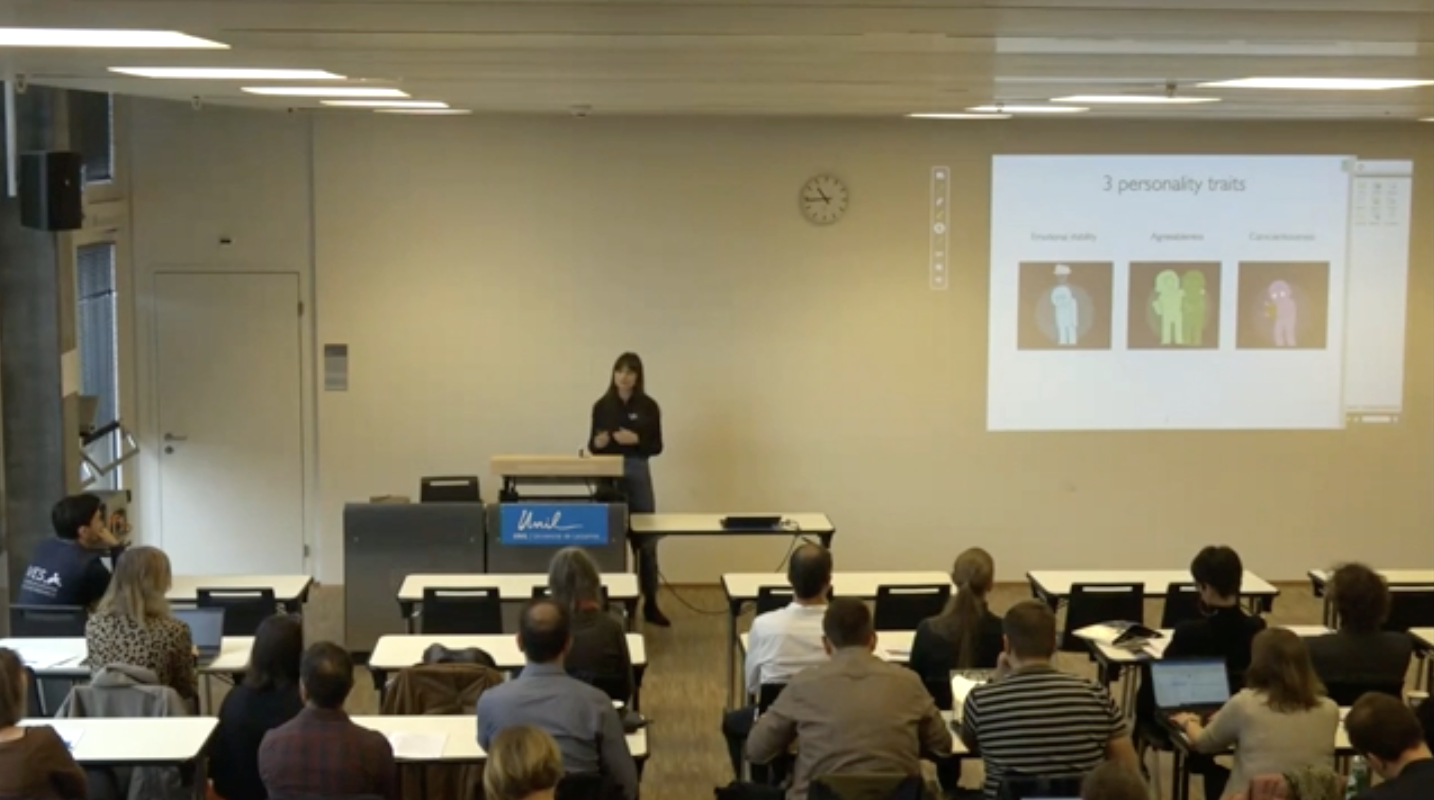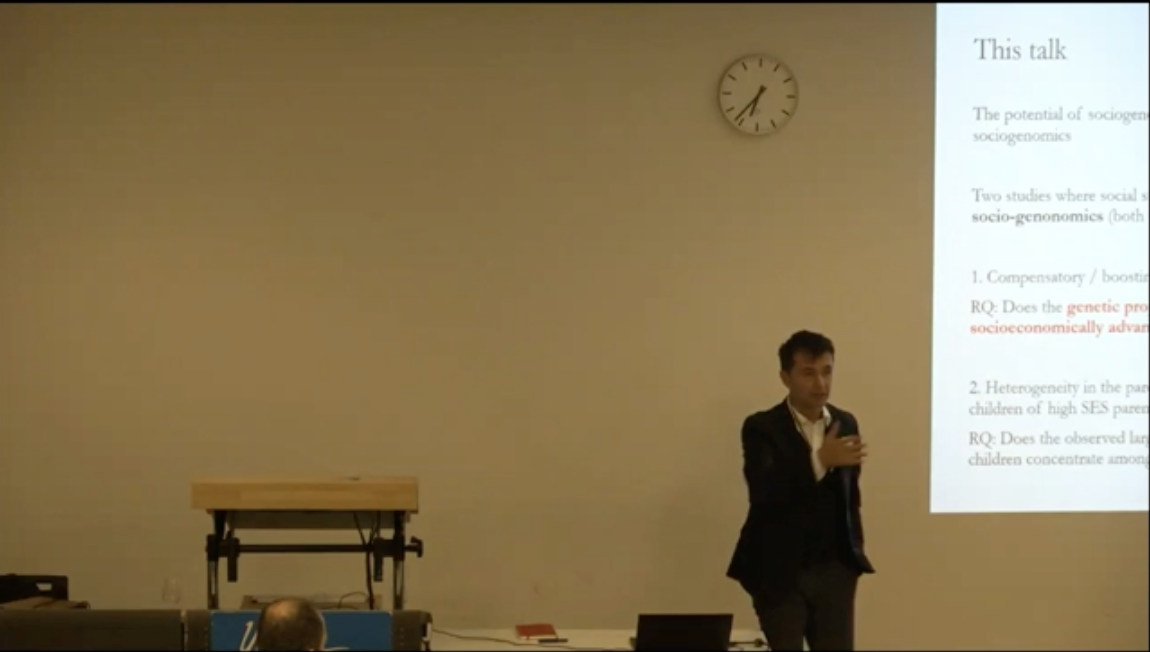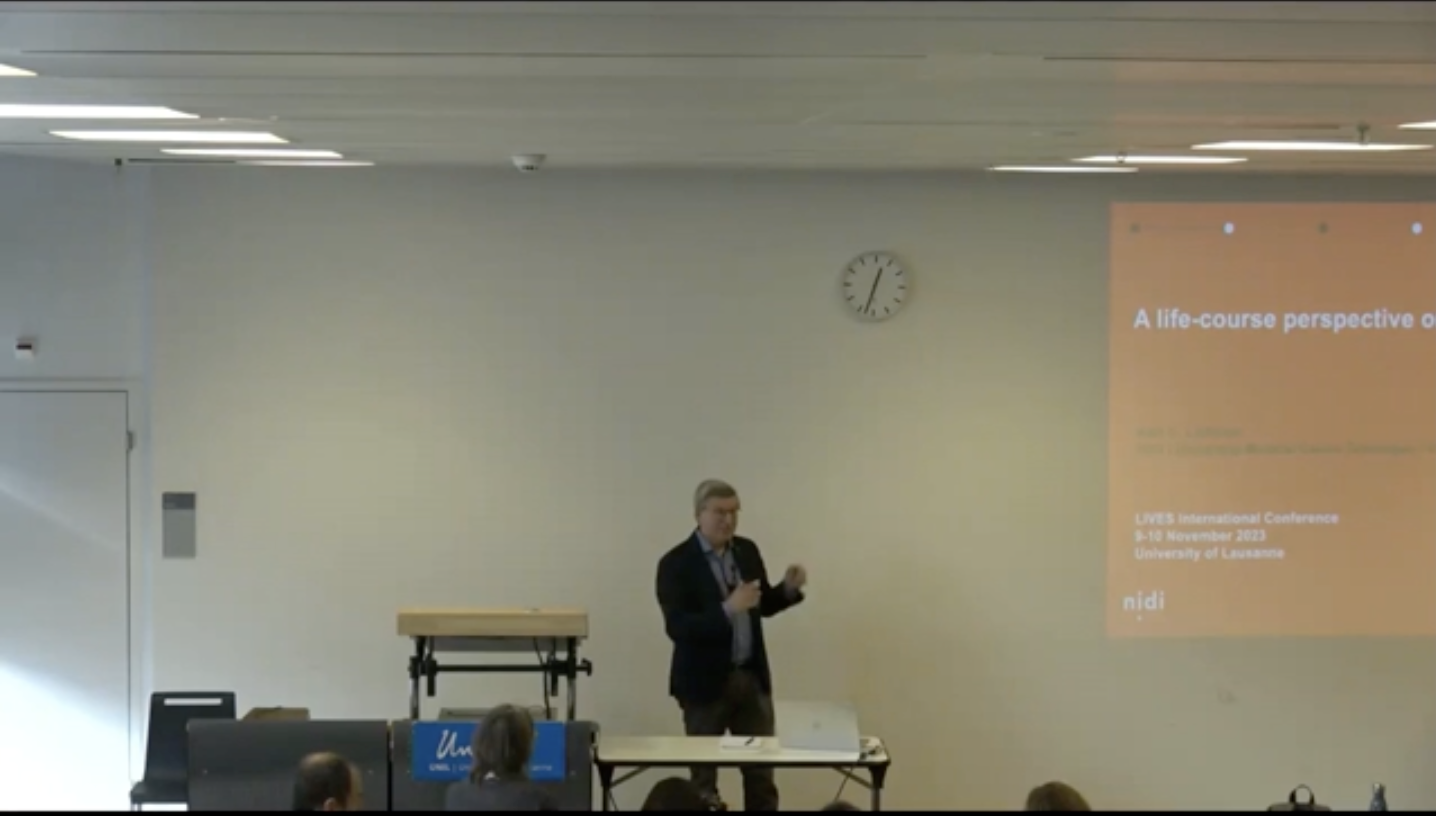Around 150 researchers had the opportunity to exchange ideas and establish connections on November 9th and 10th, 2023, during the annual international conference of the LIVES Center held at the University of Lausanne. Twenty-one thematic sessions, covering topics such as health, migration, interpersonal networks, and sequence analysis, facilitated in-depth discussions while keeping a life course perspective. In total, 52 presentations and 19 posters were showcased during these two days. Among them, Alessandro Ferrara, Jan Paul Heisig, and Jonas Radl received the award for the best conference poster. In 2024, the LIVES international conference will take place at the University of Geneva on November 5th and 6th.
Three keynote lectures structured the programme of these two days and provided an opportunity for participants to meet the new members of the LIVES Advisory Board. Professor Weibke Bleidorn, a psychologist at the University of Zurich, opened the proceedings with a lecture on critical life events and personality changes. Contrary to past psychological arguments, our personality is not fixed but evolves throughout our life span. It is influenced by both our genes and our lived experiences, which hold particular significance for us. Thus, the onset of adulthood appears to be a crucial period for personality development.
See the full presentation "Life events and personality change."
Fabrizio Bernardi, a sociology professor at the National Distance Education University in Madrid (UNED), delivered the second lecture focusing on the relationship between social genomics (the study of the molecular basis of social behavior) and social stratification. He explored the influence of socioeconomic status and parental separation on children's educational attainment. His findings indicate that families with good socioeconomic conditions compensate for any potential lack of genetic predisposition in their children for education. Additionally, children of separated parents are less likely to complete college.
Professor Aart Liefbroer, a demographer at the University of Groningen, gave the closing lecture on singlehood. This addressed a significant gap, as single individuals are often overlooked in social policies and life course research, despite spending 15 to 25% of the years between 30 and 50 as singles on average. The observed effects between 50 and 59 are noteworthy: fewer singles are homeowners, feel more isolated, are more likely to face financial challenges, and trust others less. These results should encourage policymakers to focus more precisely on this segment of the population.
See the full presentation "A life-course approach to singlehood."
Finally, Alessandro Ferrara, Jan Paul Heisig, and Jonas Radl were awarded the prize for the best conference poster, with a value of 200 CHF. Their research, "The impact of parental health shocks on well-being and development in early adulthood: Evidence from Germany," was recognized for the quality of the graphical presentation, the relevance and originality of the research question, and the researchers' mastery of oral presentation. Congratulations to them!
All presentation abstracts and videos of keynote lectures are available on the LIVES Center website.




